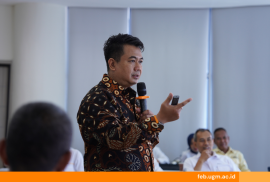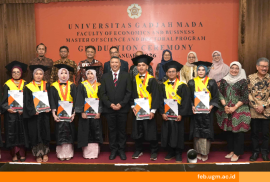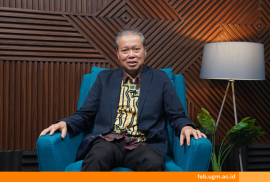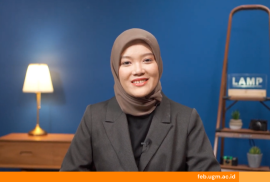Retirement is often perceived as a time to rest after decades of working.
The phenomenon of overwork, defined as excessively long working hours, has become a reality for many workers in Indonesia.
Entrepreneurship programs have the potential to serve as a bridge of hope for formerly incarcerated individuals who still carry the determination to start a new life.
The Faculty of Economics and Business, Universitas Gadjah Mada (FEB UGM), graduated 208 postgraduate students from its master’s and doctoral programs at the Postgraduate Graduation Ceremony Period II of the 2025/2026 Academic Year.
The euphoria of the FEB UGM futsal team’s victory at the 2025 Gadjah Mada University Sports and Arts Week (PORSENIGAMA) still lingers.
As global attention to the climate crisis continues to grow, the issue of energy transition has increasingly featured in national development discourse.
The presence of chatbots has become increasingly crucial in the e-commerce ecosystem, serving as the frontline of customer service.
The government has once again granted an incentive in the form of an exemption from Income Tax (PPh) Article 21 in 2026.
Amid government efforts to safeguard state revenue and energy stability, the discourse on cutting coal production has resurfaced.
Today’s young generation is faced with new challenges to remain relevant in the era of the attention economy, an era in which public attention has become a valuable commodity with high economic worth.
Can we help you?










